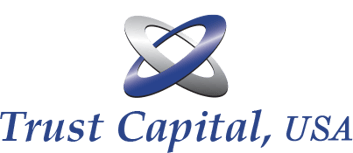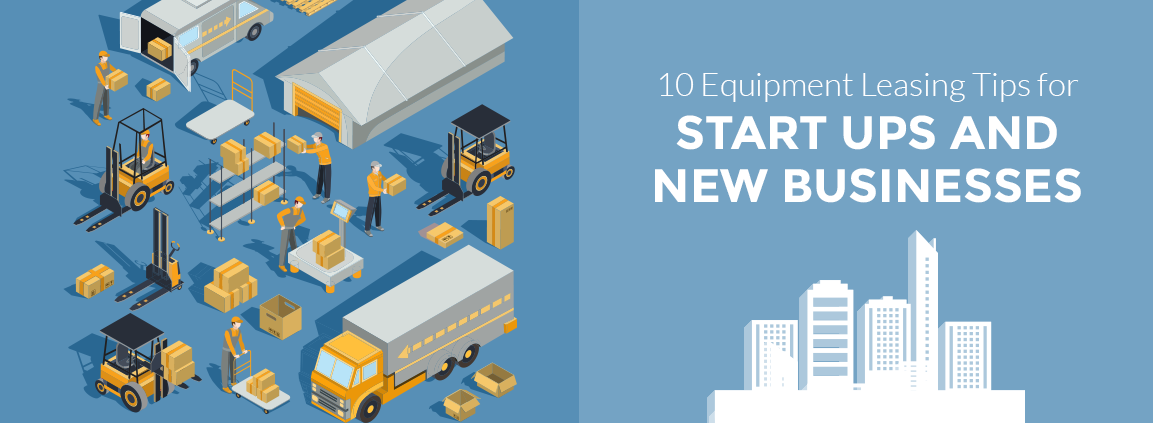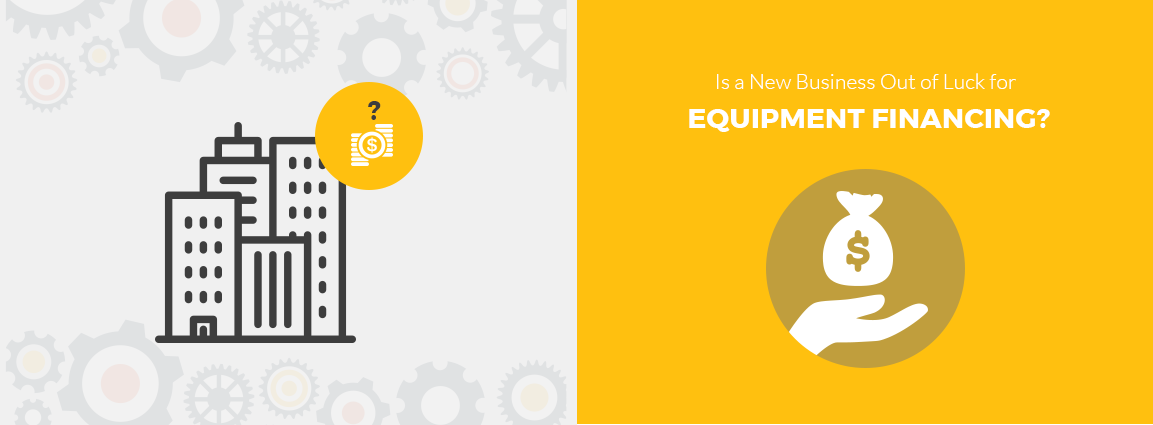Starting a new business from the ground up is already challenging enough before you even get into the financial factors that allow you to open your doors and stay in operation. So how do businesses of various sizes and industries get funded and stay in operation, especially during their earliest months?
Each business is going to have different requirements, so it’s important to factor these major tips into your business decisions when considering equipment leasing for new businesses. Remember to always consult with your team and financial experts within your area to ensure that your choice to utilize equipment leasing for new businesses and other forms of financing are viable.
1.) Organize Your Financial Information
Before you even start to look for equipment financing options, such as equipment leasing for new businesses, make sure that you’re working with your team to collect and neatly organize all the financial information of your business.
The last thing you want to do is approach a provider of equipment leasing and not be prepared; this can be a bad sign to equipment lessors and may associate you and your business as disorderly and unprepared, making them less likely to provide equipment financing to you than when you showed up the first time.
2.) Be Prepared for Less-Than- Ideal Equipment Lease Rates (In the Beginning)
Rather than going in expecting to get the best deals straight out of the gate, recognize that you’re a new business and are therefore considered “risky” to an equipment leasing company. A very high percentage of businesses go out of business in their first two years.
Your personal and current business financials will play a large role in the kind of rates you get, particularly when it comes to equipment leasing for new businesses.
On top of that, who you talk to will also directly impact the rates you get and how affordable they will be for you. For example, if you try to get equipment leasing for new businesses through normal financial institutions like a bank, you may not even get an offer.
Whereas if you go to a financier that specializes in equipment leasing for new businesses, or a manufacturer directly, you’ll not only have a better chance at striking a deal, but may also be able to acquire better equipment leasing rates - as it will tend to be their “specialty” in financing.
The best thing you can do is to shop around and collect data on every offer that you can, and then only consider the best option when you’ve had a chance to compare all the options for equipment leasing for new businesses.
Here are some handy equipment loan calculator tools to help you along your way.
- What will my financing payments be? Using an equipment financing calculator.
- What is my equipment financing rate? Using an equipment loan calculator.
- How much equipment can I afford to buy? Using an equipment lease calculator.
- What is my equipment leasing rate? Using an equipment leasing calculator.
- What will my equipment lease payments be? Using an equipment lease calculator.
3.) Refine Your Selection of Potential Equipment Leasing Companies
Don’t even consider signing on the dotted line for equipment leasing for new businesses before you’ve had the chance to research the equipment leasing companies you’re looking to get help from. After you’ve compared all the potential financiers, you want to take the time (as long as it takes) to research each potential equipment leasing partner in depth.
Utilize every tool at your disposal, from online searches to digging into social media, better business bureau and review sites. You want to make sure that you’re working with a reputable partner, and not someone who is just putting on a “respectable” front to the public.
4.) Avoid Application Fees
When working with financiers for equipment leasing for new businesses, make sure to avoid offers that include an “application fee.” It’s something that new business owners can easily overlook by accident, but these fees are often unnecessary and are just used to pocket a little extra change. Don't “pay to apply” and still end up not getting any kind of equipment financing offer. People with bad credit looking for equipment financing are usually targeted for this.
5.) Will Section 179 Deductions Benefit You?
Most business owners are looking for ways to lower their taxable income this year. What better way than to bring in equipment that will increase revenues and decrease paying Uncle Sam. You’ll need to grab your calculator for this one. You’re going to want to know whether or not Section 179 deduction and/or bonus depreciation will benefit your business or not. It’s always worth taking a little extra time to calculate whether or not a single business decision is going to cost or save you a significant amount of money that you could spend elsewhere on your business. One such decision is whether or not you should utilize equipment leasing for new businesses.
As long as you structure your equipment lease as a $1 buy out lease, a 10% PUT lease or just use an equipment finance agreement you will be able to utilize section 179 deduction benefits to lower your taxable income.
To quickly and easily calculate your section 179 tax savings. Take your equipment amount and multiply it by 35% (assuming a 35% tax bracket). This figure is your tax cash savings on your equipment purchase. Subtract this figure from your equipment cost to see your new cost of equipment ownership utilizing section 179 Tax Savings.
6.) Know Your Business Losses and Be Ready to Explain Why It Happened
If you’ve ever taken a loss during any month or quarter, be ready to explain to financiers what happened. If you aren’t able to explain what caused it and how you’re going to avoid it from happening again, a financier may not feel ready to fund your purchase.
7.) Know the Difference Between FMV and $1 Purchase Option Lease
The end of equipment leasing for new businesses has different results, based on how you’re setting up your agreements.
A Fair Market Value (FMV) lease is a common lease that typically provides low monthly payments and grants significant flexibility when the lease ends. Business owners that choose an FMV lease for their equipment leasing for new businesses also has tax advantages to take into account.
When you opt for a $1 Purchase Option lease instead, you’ll get to “purchase” the equipment at the end of the lease for just $1. Compared to the FMV lease, the monthly payments will be higher, but you’ll also have financial benefits (e.g., depreciation) and other tax incentives.
8.) Bundle Multiple Equipment Purchases Under One Lease
When scaling up your business to acquire all the necessary equipment to do basic operation, you may need to go to different vendors. Do your best to bundle all the equipment purchases under a single equipment lease.
This helps to keep things simplified and may even net you more affordable rates in the long run. If you can figure out what types of equipment you need from the get go, you can bundle your equipment leasing for new businesses into one simple payment and possibly get some better deals.
9.) Be Ready to Articulate How the Equipment Acquisition Will Help You
The ability to articulate how your equipment will allow you to succeed as a business is critical for being able to secure funding from outside equipment leasing businesses. Similar to your business plan, make sure to be detailed and show the equipment leasing company that you’ll be able to make the payments as a result of the business you’ll do with the equipment.
Equipment Finance Companies may be more willing to offer you equipment leasing for new businesses if you have a solid business plan regarding utilization of equipment and payment.
10.) Keep Everything as Simple as Possible
At the end of the day, if you’re a new business owner, you want to make sure that you’re keeping everything as simplified as possible. If you ever feel like equipment leasing offers and plans are starting to get too complex or convoluted, it may be time to take a step back and re-evaluate. Don’t forget you can always partner with or hire a financial adviser, or someone to handle the more complicated financial matters of your business.
Contact us today at 866-458-4777 to learn more about equipment leasing for new businesses and how they can help your business get off the ground in less time.


 (866) 458-4777
(866) 458-4777

 Paul Kendall
Paul Kendall






